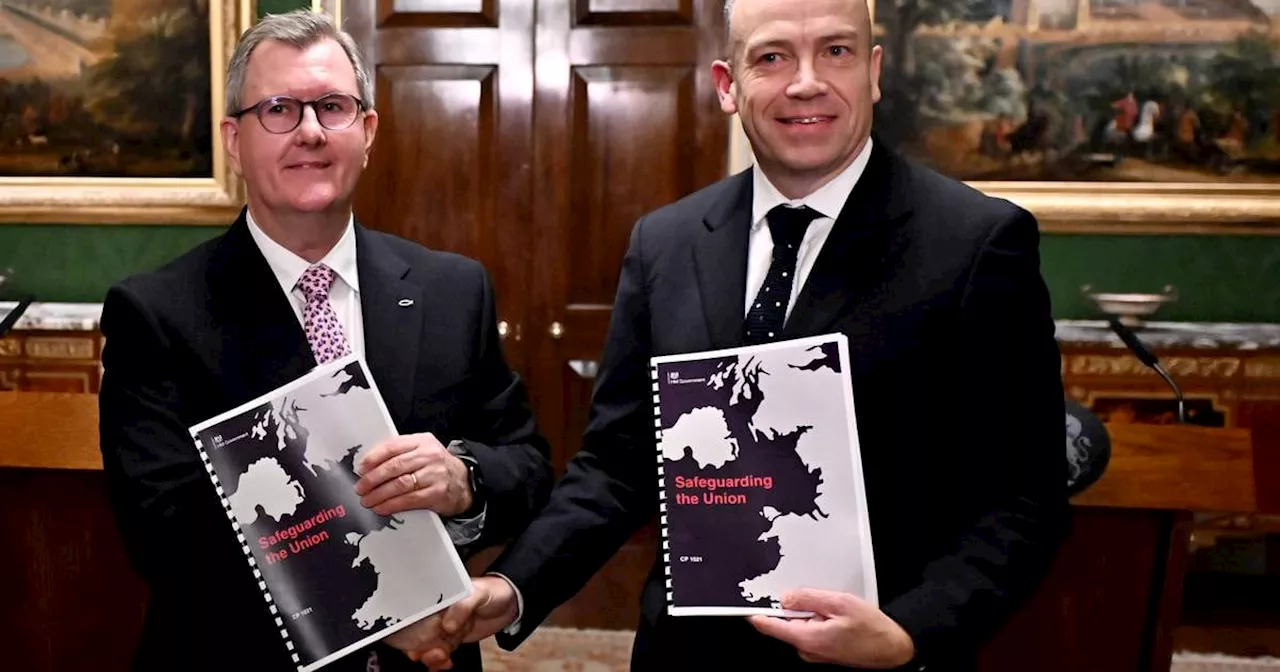As public sector union members prepare to vote on the new agreement, here is why they should accept the terms offered.
As public sector union members prepare to vote on the new agreement, here is why they should accept the terms offered. The rise in earnings of individual public servants over recent years will depend not only on where they work but also where they are on the increments scale. It will go out to union members to vote on in the weeks ahead. It is less than their negotiators were looking for, but nonetheless they would be well advised to accept it. Here are the key reasons why.
Forecasts for the economy are for reasonable economic growth this year, but there is no doubt that the outlook remains murky. The jobs market is slowing and while unemployment has hit historic lows, it is rising. We have seen lay-offs in tech and some other traditional manufacturers, while the SME sector is clearly under pressure. This should ease private sector pay growth –in conjunction with the Central Bank of Ireland showed pay increases running at 3.7 per cent in December, down from
Public Sector Union Members Vote Agreement Earnings Negotiators Economy Economic Growth Jobs Market Unemployment Lay-Offs Tech Manufacturers SME Sector Private Sector Pay Growth Central Bank Of Ireland
Ireland Latest News, Ireland Headlines
Similar News:You can also read news stories similar to this one that we have collected from other news sources.
 The Union Boss Targeting Ireland's Tech SectorCWU general secretary Seán McDonagh discusses the unions' efforts to organize in Ireland's tech sector, despite challenges such as companies not responding to communication.
The Union Boss Targeting Ireland's Tech SectorCWU general secretary Seán McDonagh discusses the unions' efforts to organize in Ireland's tech sector, despite challenges such as companies not responding to communication.
Read more »
 Disparity in Pension Terms between Public and Private SectorsThe vast bulk of employees in the private sector will retire on much lesser terms than their public sector equivalents. Pensions for people who joined the public service before 2013 and completed full service generally amount to 50 per cent of salary and a lump sum of one and a half times' their salary. It is that if the rules were changed in relation to the pension arrangements applying to those who joined the public sector before 2013 – so that their future pension increases were based on inflation, rather than to the increases applying to the job they retired from – then, on reasonable assumptions, the total State liability for all public sector pensions would drop by 20 per cent. It is part of a story of the generous pensions enjoyed by this group – both those already retired and the 200,000 still at work. They are, on average, significantly better than pensions available to the generally younger post-2013 entrants and also to the vast bulk of employees in the private sector.
Disparity in Pension Terms between Public and Private SectorsThe vast bulk of employees in the private sector will retire on much lesser terms than their public sector equivalents. Pensions for people who joined the public service before 2013 and completed full service generally amount to 50 per cent of salary and a lump sum of one and a half times' their salary. It is that if the rules were changed in relation to the pension arrangements applying to those who joined the public sector before 2013 – so that their future pension increases were based on inflation, rather than to the increases applying to the job they retired from – then, on reasonable assumptions, the total State liability for all public sector pensions would drop by 20 per cent. It is part of a story of the generous pensions enjoyed by this group – both those already retired and the 200,000 still at work. They are, on average, significantly better than pensions available to the generally younger post-2013 entrants and also to the vast bulk of employees in the private sector.
Read more »
 Rugby Union: The Myth of the Amateur EraThe article discusses the misconception that rugby union was better in the amateur era and argues that the modern game is of higher quality. The author challenges nostalgists to watch matches from the amateur era and highlights the lack of skill and focus on contact in those games.
Rugby Union: The Myth of the Amateur EraThe article discusses the misconception that rugby union was better in the amateur era and argues that the modern game is of higher quality. The author challenges nostalgists to watch matches from the amateur era and highlights the lack of skill and focus on contact in those games.
Read more »
 UK Government Proposes Amendments to Safeguard Union with Northern IrelandThe UK government plans to amend the UK's Internal Market Act to allow 'unfettered access' between Northern Ireland and the UK, prohibiting exit checks on goods moving from Northern Ireland to Britain. The proposed legislation has been widely welcomed.
UK Government Proposes Amendments to Safeguard Union with Northern IrelandThe UK government plans to amend the UK's Internal Market Act to allow 'unfettered access' between Northern Ireland and the UK, prohibiting exit checks on goods moving from Northern Ireland to Britain. The proposed legislation has been widely welcomed.
Read more »
 Cost of public service pensions in Ireland rises by 17% in three yearsActuarial report notes bill will start to fall from 2040 as impact of newer recruits paying towards their pension takes hold
Cost of public service pensions in Ireland rises by 17% in three yearsActuarial report notes bill will start to fall from 2040 as impact of newer recruits paying towards their pension takes hold
Read more »
 Donaldson faces pressure to sell deal as opponents waitDonaldson could not delay on selling deal as opponents waited to pick it apart and public sector workers sought pay rise
Donaldson faces pressure to sell deal as opponents waitDonaldson could not delay on selling deal as opponents waited to pick it apart and public sector workers sought pay rise
Read more »
